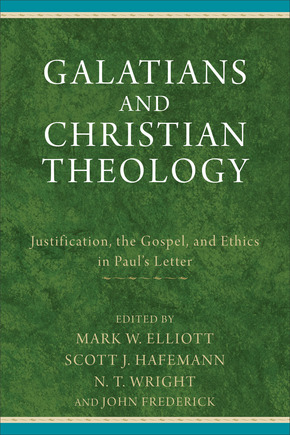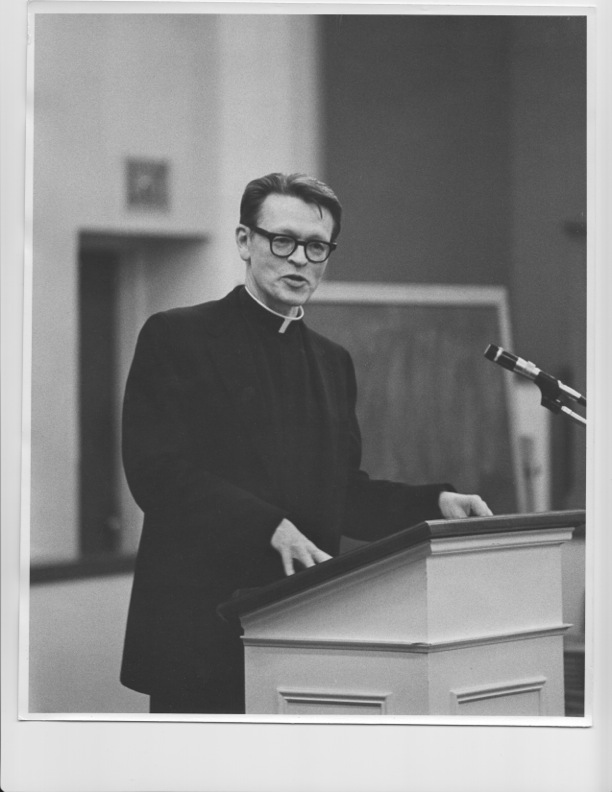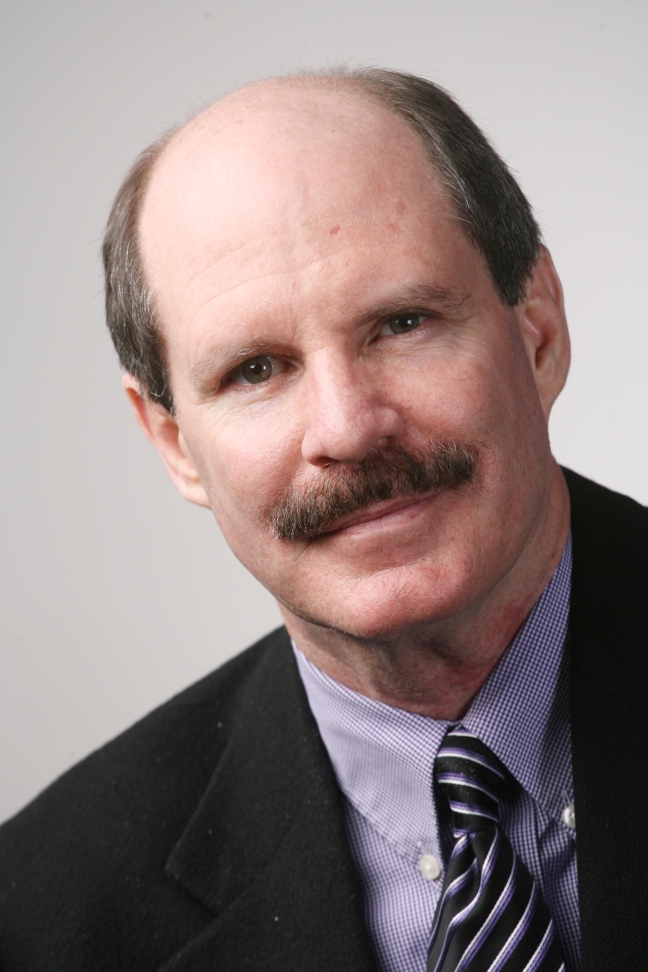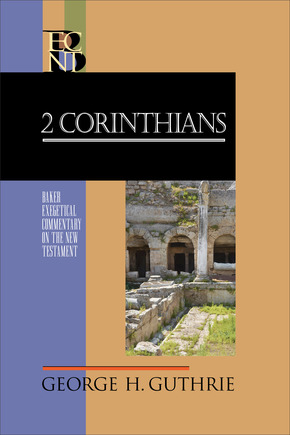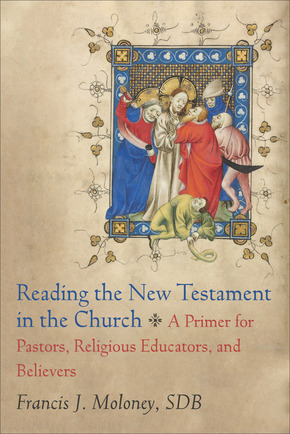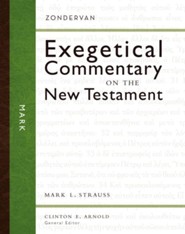My good friend, Dr. Michael Halcomb, has written a truly unique book that fills an immense lacuna in NT scholarship vis-à-vis the church. If one thinks that this a biased overstatement from one friend on behalf of another, I simply ask you to pick up a copy of
Entering the Fray: A Primer on New Testament Issues and the Academy (
W&S) and judge for yourself. There is simply no other book remotely like this one. Still need convinced? Check out some of the endorsements for this volume:
"New Testament studies are often a beehive of contentious debates. Halcomb surveys several of these debates and guides his readers away from the killer bees of confusion and takes them to the honeycomb of understanding. If you want to get a grip on some hot-potato topics in biblical studies without frying your figurative fingers, then Halcomb does a sterling job of introducing readers to several big debates and showing what the various interpretative options are. Great for students!"
—Michael Bird, Highland Theological College
"
Navigating New Testament scholarship can be daunting. In Entering the Fray, Halcomb proves to be a reliable guide. This thorough-yet-succinct presentation introduces the major issues and players of the last four hundred years. With a personal touch, Halcomb demonstrates what scholars do and why the church needs scholarship. This book is for anyone who ever wondered about New Testament scholarship and what impact it has on their faith and life."
—John Byron, Ashland Theological Seminary
"Entering the Fray offers non-specialists an easily accessible path into scholars' conversations on key concerns, such as the nature of the New Testament canon, the relationship between the Gospels, and the historical accuracy of Acts. In all twelve chapters, Halcomb explains why the scholars' discussions should matter to the church."
—Lynn H. Cohick, Wheaton College
"Halcomb does the church and academy a great service by answering the big question of why the church needs academic studies . . . This is a good book for all who want to seek the truth behind the text. Whomever 'enters the fray' will come out on the other side a better and more learned student of the Bible."
—Sam Tsang, Hong Kong Baptist Theological Seminary
"The work of New Testament scholars can be both fascinating and important, but also quite technical. Halcomb has written an accessible and engaging account of several of the key issues discussed among New Testament scholars today. I recommend this book for the clear and succinct ways in which it explains some interesting debates among biblical scholars, debates that have real significance within the life of the church."
—David F. Watson, United Theological Seminary
"The church and the academy, no less than the prodigal son and his older brother, have had a rocky history. Like the proverbial father, Halcomb is devoted to both and hopes to bring them together into a peaceable and even amicable relationship. Entering the Fray provides a sympathetic introduction to hot topics and prominent figures of New Testament scholarship for Christians who find themselves unsure what all the fuss is about."
—Rafael Rodríguez, Johnson University
Backed by these endorsements and now mine, I would highly recommend this volume for NT Intro courses
, adult Sunday school classes, and anyone interested in the relationship between the church and the academy, an often bifurcated alliance at best. Recently, I had the good fortune of interviewing Mike who recently was awarded his PhD in NT from Asbury Seminary. On to the interview.
1. Talk a bit about your motivation for writing this book.
Sure, Matt, but first let me say “Thank You!” for not only reading this book but really coming away from it with a desire to encourage others to dig into it; I am very grateful for that. And let me just say, your blog has become a great online stop for resources related to biblical studies, especially those in the field of New Testament studies, and I’m honored to interview with you here on
NTP about
Entering the Fray.
To get back to your question, the motivation for writing this book stemmed from two places really: 1) My deep and abiding love for the church; and 2) My desire to make the most of the months of preparation leading up to my doctoral comprehensive exams. I’ll briefly say a word about both of those. With regard to point number 1, I should note that I have either been teaching or preaching within a church context for the last decade. I have pastored and taught in inner-city churches, suburban mega-churches, church plants, and old-time rural churches. In the midst of such opportunities, I have consistently encountered a suspicion of Bible scholars.
In one congregation I had a woman who felt like it was her job to remind me, almost on a weekly basis, to not let seminary destroy my faith. I grew so weary of hearing this and a desire was kindling within me to address it in some positive and helpful way. I wanted to show Christians, especially evangelical Christians, that there was no need to be afraid of Bible scholars and since that is the case, there is no need to be afraid of the things those scholars talk about. In fact, every Christian stands to benefit from knowing what issues are being talked about and who some of the persons involved in the conversations.
Why is this? Because it is the scholars who teach in the seminaries that train the pastors and it is the scholars who write the books and commentaries that pastors use. Thus, scholars influence pastors. In turn, pastors influence congregants. Congregants shape the church. The church should help shape communities and societies. So as you can see, a lot of this comes back to scholars and the issues they address.
When I started preparing for my comprehensive exams during my Ph.D. studies, I decided that I would take that time and parse out these major issues in a real down-to-earth, user-friendly type of way. That’s what I aimed to do (and hope I accomplished) in Entering the Fray. Basically, I was able to kill two birds with one stone—prepare for my exams and use that preparation to create a helpful resource. And again, I hope this resource will be beneficial for both laity and college/university/seminary students. I think it would make a great Sunday School study but it could also be a great resource for classes related to the New Testament.
2. I imagine that narrowing down the most essential topics in New Testament studies was challenging. How did you decide what topics should be discussed?
Yes, it absolutely was! The way that I really started to narrow the topics down was to ask: 1) What major issues have shaped the field of New Testament over the last 400-500 years? And 2) Across the New Testament canon, what issues have been game-changers. Now, those two answers are pretty closely related but they are different in that one deals with the “field” of NT studies while the other is focused on issues pertaining to the whole of the NT canon. Another aspect of this was, to bring it up once again, my comp exams. I found myself thinking: “What could my committee possibly ask me on those exams?” Anticipating and thinking through that also helped me come up with some of the topics and related questions.
3. In addition to the volume itself, you have designed an interactive website for the book. Discuss some of the ways readers of your work can benefit from the website.
Right! The major part of the interactive website is a user-friendly timeline that includes a picture and brief biographical sketch of every New Testament scholar mentioned by name in the book. But there are also some short videos and a link to by an audiobook version of Entering the Fray. So, readers can benefit from the site by finding out some things about NT scholars, getting chapter video previews, and if they so desire, picking up an audiobook copy of the work. Within the book, at the front of each chapter there are QR codes that folks can point their mobile devices at and automatically be taken to the site if they’ve got an internet connection. I should probably also mention that there is also a helpful timeline in the back of the book.
4. One of the features of this work that I find so valuable are the call-out boxes that provide the reader with essential biographical information of scholars past and present. In what ways does the feature help the reader understand the history of scholarship?
That’s great! I’m definitely glad to hear you say that. I worked really hard on those “Scholarly Sketches” (the “call-out boxes” you’re referring to). One of the biggest aims of these “Sketches” was to humanize Bible scholars. This is why I mention specific names, dates, spouse names, children names, accomplishments, struggles, and the like. I wanted readers to know and be reminded that, like everyone, those who identify as Bible scholars are humans just like everyone else. It is really easy to demonize someone like Bultmann and just forget his context and forget that he was a human. Now, this is not to say that these scholars are always right and never wrong, that’s just not the case. But when you begin to really get to know someone, it often means that it becomes a lot less easy to demonize them and much easier to understand where they’re coming from.
When things like this are accomplished, especially for the lay person or the seminary student, I feel like something quite significant has happened. Knowing who we are and where we have come from is important for where we are going. Yet, it is also important in helping formulate our own ideas and identities. The fact is, the church-goer just has not tapped into the rich history of New Testament studies. Part of the reason for this is that pastors have not helped them do so. But part of this comes from professors not equipping them. So, if Bible scholars want church-goers to get out of the downward spiral into biblical illiteracy, then they must do something about it. This means not only working through this issues with them and introducing them to various voices discussing these issues, but also equipping them to address these matters with laity.
5. One of the challenges of a book such as this is to make palatable complicated discussions such as the so-called Synoptic problem (57-68). As a scholar and writer, how did you narrow down the ‘so what?’ for the person in the pew?
You’ve hit the nail on the head there, Matt. The way that I really tried narrowing down the “So What?” aspect for the person in the pew was just to tap into some of my own reservations I experienced when confronted with these types of topics for the first time. I think it’s quite easy for those who’ve gone through various degree programs, especially Ph.D. programs, to forget that these scholar issues do directly affect the average layperson or seminary student…sometimes in very deep and profound ways. Put differently, it is easy for scholars to talk to other scholars and in doing so to talk past those who are not yet at that place/level.
In addition, I worked really hard to trace out the pastoral implications of every single topic addressed in this book, from the formation of the canon, to the Synoptic Problem, to archaeological finds, and beyond. These matters are not relegated to the scholarly realm only and never will be, despite the fact that some scholars may wish that were the case. And believe me, I’m not at all anti-scholarship. I value the fact that some scholars write for other scholars and have, as their main focus, engaging other scholars. That’s needed in certain circumstances. But for me personally, that’s not the case. While I obviously engage other scholars, as I said before, I have a deep and abiding passion for God’s church. I want to help bridge that gap between these two realms and chart a path for generating fruitful discussion on important issues.
6. One of the impressive attributes of this volume is the amount of information packed into a volume of this size. How much research did this require?
What were some things that you learned along the journey?
Thanks you for those kind words. I really worked hard to make this volume at one and the same time academically robust and easy to access. It certainly required a lot of research but it’s quite hard to quantify it. As you know, the book goes through the NT canon addressing major issues and to be fair to all sides (I’m not functioning as an author with an agenda of apologetics in this book), it really took a lot of work.
Hmmm…what were some of the biggest takeaways I had along the journey? Well, one was that, in creating the biographical snippets (Scholarly Sketches), the resultant effect on me was just a greater appreciation of significant NT scholars over the course of the last several hundred years. An added bonus was just a great appreciation for an ecumenical spirit in this field. I really enjoyed writing the chapter on the historicity of Acts and learned quite a bit. I would really encourage folks to dig into that research, it is really rich. The chapter on major archaeological finds was also good for me. In the course of writing that chapter I came to some good conclusions about how to engage archaeology responsibly, especially with regard to exegetical and theological claims.
Gaining such a wide overview of NT issues really positioned me well for my comprehensive exams. That was one of the places I scored with High Pass. That might not have ever happened had I not been focused on this book throughout the course of those months of study. I would like to think that this volume would be a very nice overview/review for other students who will be faced with questions about the NT and NT studies on their tests too. It truly was a joy writing this book and I’m glad I get to share my findings with others.
7. What impact would like to see your Entering the Fray make in both the church and the academy?
You know, Matt, I’d love to see this book used widely in both churches and classrooms. It would make, as I said, a great Sunday school study or even a small group study. It would fit very well into NT Intro courses too. I’m thankful that folks like yourself are helping get the word out about it. I’m also grateful that it’s been mentioned on a few blogs/websites and in several academic journals, including
JSNT (Journal for the Study of the New Testament). I know it’s slated to be reviewed in several other journals too, and I look forward to those.
Most of all, my desire, my ministry, is to really help folks love God with all their mind and a few folks who've read this have contacted me explaining that this has happened for them. As the author of this book, there could be no greater accomplishment. It is such a privilege to have a writing ministry that reaches folks in this way. I’m so grateful to be able to do this. I hope that this book can continued to be used for God’s glory and that his people will be blessed and strengthened by it.
Having said that, let me also wrap things up here by saying “Thank you!” again, Matt, for taking the time to read this book and share about it on your site. I hope that any who read this interview and in turn, read the book, are both blessed and challenged by it. Keep doing good work, Matt; your blog has become a unique and trusted resource for those interested in NT studies.




















